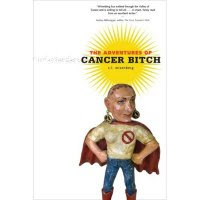
Happy new year to everyone. May this be a year of joy and health, meaning good health. Everyone has some kind of health, I guess, as long as you're alive. Which leads me to a couple of pieces that I've gotten in the mail and have been thinking about. First, a fund-raising letter from the Authors Guild. The Guild wants me remember it in my will. Enticements: There are some estate and income tax benefits, too, not to mention invitations to special events and special seating.... The great thing about this is, you don't have to pay until after you die.
I suppose the special seating is for before I die, not after, but you never know, since I'll be paying when I'm gone. The Guild intends for me to be a very active corpse.
But I won't be a corpse. I'm donating my organs, and the largest organ is skin, so I plan to be parceled out. If there are no uses for my bones, I may hang together as a skeleton.
Second piece in the mail: brochure from Rush University Medical Center, telling me that even if I do crossword puzzles or play chess in order to keep my brain sharp, I could still be screwed--and worse--in the end. A report in the journal Neurology indicates that if you have lesions from dementia, you can delay symptoms by stimulating your brain, but eventually, once you develop dementia, you're going to go downhill fast. [T]he benefit of delaying the initial signs of cognitive decline may come at a cost, study author Robert Wilson said in Discover Rush. On the other hand, he said, By compressing the course of dementia, mental activities could reduce the overall amount of time that a person may suffer from the condition. And that's a good thing. You'll be older and more decrepit, and closer to death.
If, like me, you're always worried about your brain, about seeing the word you need just up the road but not being able to reach it, about using the wrong word that sounds like the right one, about being disorganized and forgetful and always looking for the place your trains of thought went, and wondering what part of this is chemo brain and what is middle-age and what is menopause (brought on by chemo with enhanced symptoms thanks to Tamoxifen)--here's the Mini-Mental State Exam used to get a handle on a person's cognitive decline.
It was a relief to see that you don't have to count all the way backwards by sevens from 100 to 2, just to 65.

Top image from here







